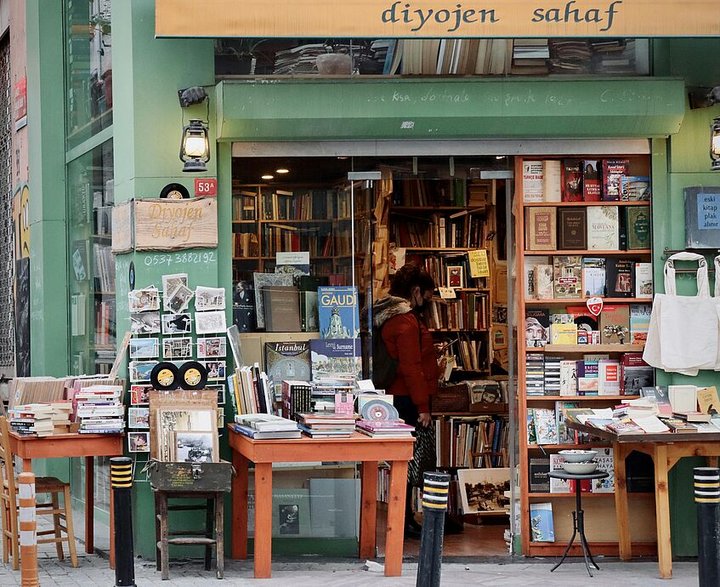Donnerstag, 03. April 2025, 17:00 - 18:00 iCal
Ringvorlesung Turkologie Sommersemester 2025
Contemporary trends in the study of modern Turkish literature
March 13th, 2025 – June 12, 2025, 5PM - 6:30PM
Institut für Orientalistik, Hörsaal
Spitalgasse 2, Hof 4.1 (Campus Universität Wien), A-1090 Wien
Vortrag
Translating Worlds, Bridging Cultures: Shaping Literary Taste(s) in 19th-Century Ottoman Empire
Hülya Çelik (Ruhr University Bochum) /Ani Sargsyan (University of Hamburg)
Abstract
Although translation activities in 19th-century Ottoman-Turkish literary production have been extensively studied, translated Turkish literature in other scripts, such as Armenian and Greek (i.e., Armeno-Turkish and Karamanlidika), has largely been overlooked. This study seeks to address at least one of these gaps by exploring Armeno-Turkish translation production in the long 19th century. We will explore the social and cultural dimensions of Armeno-Turkish printing, with a special focus on 19th-century Armeno-Turkish and Armenian selected translations and their role in shaping linguistic and literary networks in the Ottoman Empire. Examining a century of printing activities, we aim to identify the most active printing houses, their associations with specific genres and publishers, and the networks underpinning Armeno-Turkish translation projects. This approach allows us to investigate the relationships between translators, authors, publishers, printing houses and patrons, shedding light on the broader intellectual and institutional structures that supported these publications. By analyzing paratextual elements such as prefaces, footnotes, and announcements, we seek to understand how these translations positioned themselves within the broader Ottoman literary landscape and how they introduced readers to canons of ‘world literature’. Moreover, we aim to uncover patterns in translation networks, linguistic choices, literary preferences, and the dissemination of knowledge through Armenian and Armeno-Turkish publications. This study not only enhances our understanding of Armeno-Turkish literary production but also sheds light on the cultural mobility of texts and the multilingual, multi-scriptural intellectual landscape of the late Ottoman Empire.
Suggested literature:
Jennifer Manoukian, “Literary Translation and the Expansion of the Ottoman Armenian Reading Public, 1853-1884,” Book History, vol. 25, no.1 (2022): 128-171.
Johann Strauss, “What was (Really) Translated in the Ottoman Empire? Sleuthing Nineteenth- century Ottoman Translated Literature”, in Migrating Texts: Circulating Translations Around the Ottoman Mediterranean, edited by Marilyn Booth (Edinburgh University Press, 2019), pp. 57-94.
Bios
Hülya Çelik teaches and researches Ottoman and Turkish literature and culture. Since September 2020, she is Junior Professor for Turkish Studies at the Ruhr University Bochum, in the Department of Islamic and Arabic Studies. She is a graduate of Turkish Studies in Vienna, where she received her PhD in 2016. Çelik worked in the research projects “Early Modern Ottoman Culture of Learning: Popular Learning between Poetic Ambitions and Pragmatic Concerns” and “The Oriental Outpost of the Republic of Letters. Sebastian Tengnagel (d. 1636), the Imperial Library in Vienna and Knowledge of the Orient”, both funded by the FWF (Austrian Science Fund). She was a lecturer in Ottoman and Turkish language and literature at the University of Hamburg and the University of Vienna.
Ani Sargsyan is currently a Research Associate at the University of Hamburg working in the project (“Persian in the Ottoman Empire as Reflected in Selected farhangs (Dictionaries) of the 15–18th Century: A Cultural Transottoman Configuration”). Her research explores Persian-Turkish (trans)cultural interrelations, the history of Persian learning and lexicography in the Ottoman realm.Ani Sargsyan received her PhD degree in 2014 from the Institute of Literature of National Academy of Sciences of Armenia. From 2012 to 2018, she held the positions of Senior Researcher in the Institute of Ancient Manuscripts Matenadaran (Yerevan) and served as an Assistant Professor at Yerevan State University from 2014 to 2018.
Zur Webseite der Veranstaltung
Veranstalter
Kontakt
Univ.-Prof. Mag. Dr. Yavuz Köse
Department of Near Eastern Studies
+431427743430
yavuz.koese@univie.ac.at
Erstellt am Montag, 10. März 2025, 08:00
Letzte Änderung am Montag, 10. März 2025, 08:00

